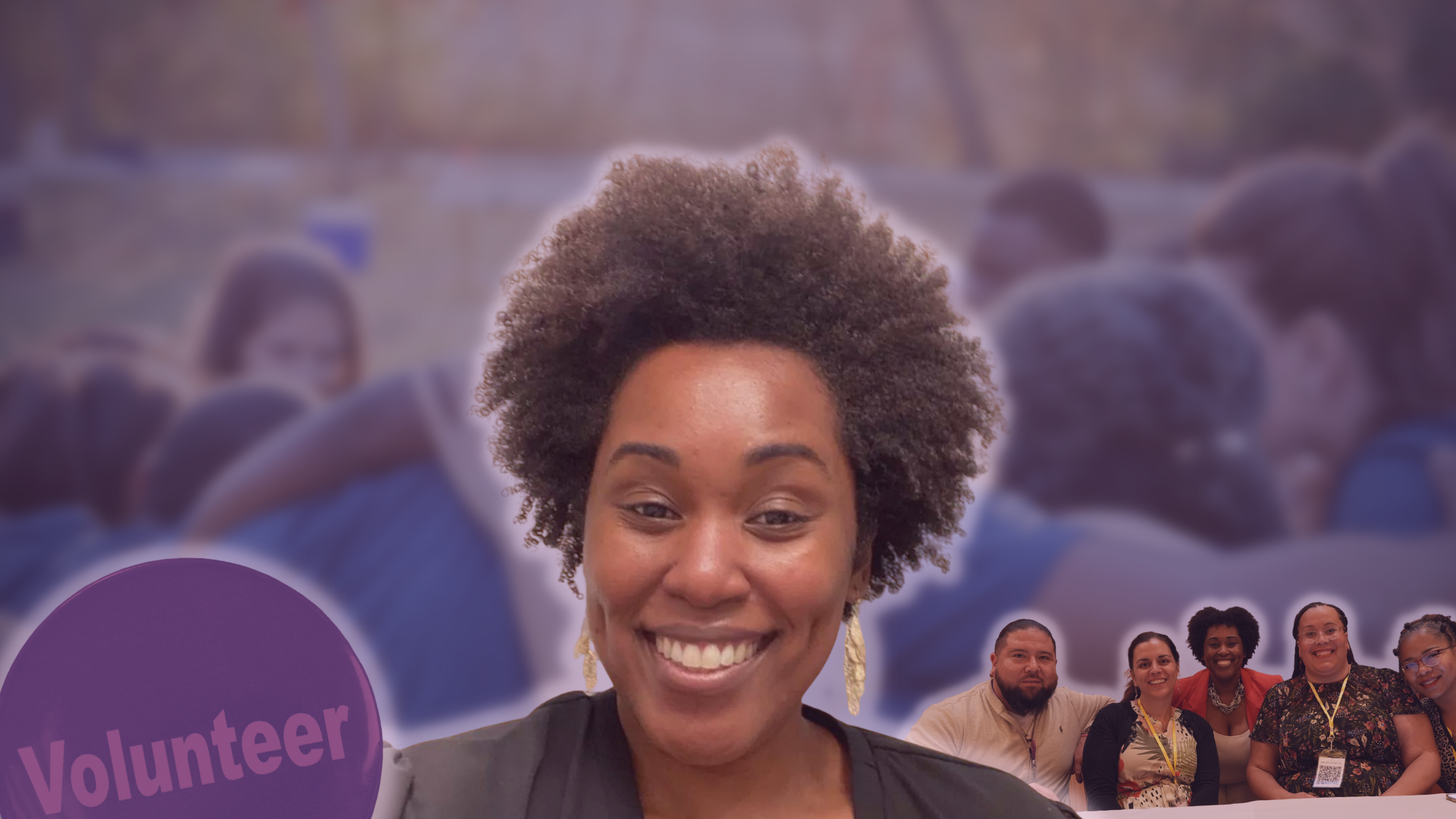In honor of Black History Month, Family Promise is highlighting our Racial Justice Council members and their efforts to ensure racial equity is addressed at all levels of Family Promise’s work.
Amber Young believes volunteering is inherent in all of us.
“I’ve always felt the reason we’re here on earth is to help one another,” Young said. “And volunteering is the way to do that.”
Young’s words are backed by her actions, as she currently serves as Family Promise’s Director of Volunteer Engagement. She actively works to advance volunteerism at Family Promise’s 200 Affiliates nationwide and has brokered volunteer opportunities for the organization’s corporate partners.
“You can volunteer by using your skills, personal talents, and professional abilities,” Young said. “I like helping other people realize that they can make an impact.”
However, volunteerism doesn’t encompass all of Young’s work at Family Promise. She is also a member of the organization’s Racial Justice Council (RJC), a committee working to ensure Family Promise addresses racial equity issues at all levels of the organization. A Black woman with over 10 years of nonprofit experience, Young understands the power dynamics that exist at most nonprofits. She notes that the majority of nonprofit staffs are white, while the communities being served are often non-white.
“There’s a lack of people of color in positions of influence and power at nonprofits,” Young said. “We’re not always at the table, but in my current role I am. So, I have to make sure I positively represent myself and my community.”
The previously mentioned power dynamics exist at Family Promise Affiliates. Nearly half of the families served by Family Promise are non-white. This means Affiliate staff members and volunteers need to be equipped with the knowledge, tools, and resources to navigate racial inequities.
Young, along with five other RJC members, created an online DEIA training tool that has empowered Family Promise’s national network to learn about topics such as biases, equity, white privilege, and microaggressions. In a cultural environment where DEIA is a trending topic, Young is making sure the critical work of DEIA is not treated like a trend.
“DEIA can be performative,” Young said. “It became the ‘popular’ thing to do in 2020 after the murder of George Floyd, but how many of the companies that spoke out then, are doing something now? You have to actually do the work and unpack the hard things, it’s uncomfortable but necessary.”
Those hard things include uncomfortable truths and conversations. The RJC was able to spotlight a few of those conversations during two separate symposiums last year. The council hosted DEIA panels that allowed RJC members to highlight how racial inequities show up–and impact–Family Promise Affiliates across the country. Young moderated one of those panels.
“I love that our RJC members were able to express themselves,” Young said. “Because the nonprofit sector is very white, it was helpful for our Affiliates to hear from the RJC members and learn about their whole experiences, personal and professional.”
Despite all the DEIA work Young has done at Family Promise, she understands that progress isn’t linear and it’s impossible to get buy-in from everyone.
“DEIA is a journey,” Young said. “It’s like being on a train and people are at different stations. Folks have to decide if they want to hop on or hop off.

